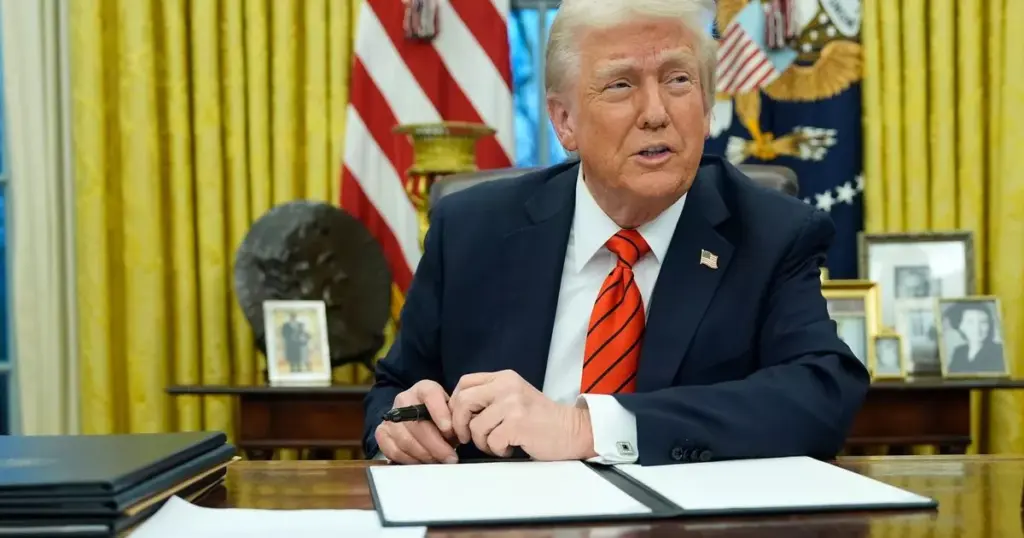
President Donald Trump has come under fire after sharing letters addressed to the governments of Japan and South Korea, which contained up to 16 grammatical errors. The letters, posted on his Truth Social account, have sparked criticism from the public and experts alike, highlighting issues of professionalism in diplomatic communications.
The letters were intended to inform Japan and South Korea of a potential 25% tariff increase on their goods, should they retaliate with their own tariffs. Trump described the trade relationship between the U.S. and Japan as “far from Reciprocal,” claiming the proposed tariff is “far less than what is needed to eliminate the Trade Deficit disparity.”
Public Outcry Over Grammatical Errors
Following the publication of the letters, social media users quickly pointed out the numerous grammatical mistakes. One user on X remarked, “Trump’s tariff letters to Japan & SK are a mess: random CAPS, no polish, pure chaos. Looks like a teen’s rant or junior staffer’s first draft, not a White House diplomatic document.”
Another user commented on the lack of professionalism, stating, “The grammar, spelling, and random use of capital letters is incredible. Like bro, get one of your staff to write it.” The letters, identical except for the addressee, were criticized for their poor punctuation and overall presentation.
Content of the Letters
The letter to Japan began with, “It is a Great Honor for me to send you this letter in that it demonstrates the strength and commitment of our Trading Relationship, and the fact that the United States of America has agreed to continue working with Japan, despite having a significant Trade Deficit with your great Country.” Trump emphasized the need for more balanced trade, inviting Japan to participate in the U.S. economy, which he described as “the Number One Market in the World, by far.”
Trump further asserted that the U.S. has spent years discussing its trade relationship with Japan and South Korea, concluding that it must address the persistent trade deficits caused by Japan’s tariff and non-tariff policies. He warned, “Starting on August 1, 2025, we will charge Japan a Tariff of only 25% on any and all Japanese products sent into the United States, separate from all Sectoral Tariffs.”
Implications and Expert Analysis
Experts have weighed in on the potential ramifications of Trump’s letters. Trade analyst Dr. Emily Chen noted, “The language used in these letters not only undermines diplomatic decorum but could also exacerbate tensions with key trade partners. The errors distract from the substantive issues at hand.”
Historically, diplomatic communications have been carefully crafted to maintain international relations. The errors in Trump’s letters stand in stark contrast to the meticulous nature of past presidential correspondences. Political historian Dr. James O’Connor commented, “This incident highlights a departure from the traditional standards of diplomatic communication, which could have long-term effects on the U.S.’s global reputation.”
Looking Ahead
The letters concluded with a call for Japan and South Korea to open their markets to the U.S., suggesting that the U.S. might consider revising the tariff proposal. Trump assured, “We will do everything possible to get approvals quickly, professionally, and routinely — In other words, in a matter of weeks.”
As the international community responds to these developments, the focus remains on how these communications will impact future trade negotiations. The errors in the letters have added an unexpected layer of complexity to an already challenging diplomatic landscape.







